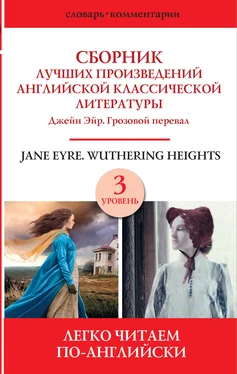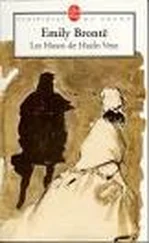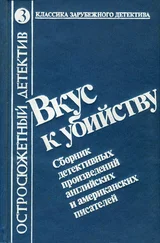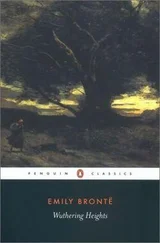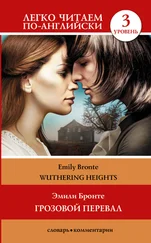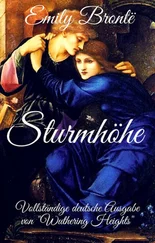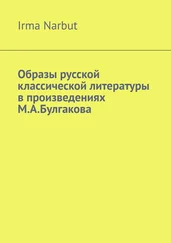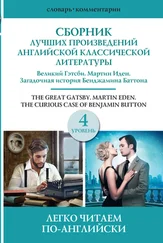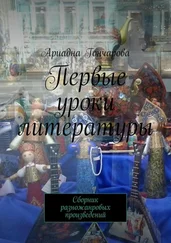I heard footsteps, the key turned, Bessie and Abbot entered.
“Take me out! Let me go into the nursery!” I cried.
“What for? Are you hurt? Have you seen something?” demanded Bessie.
“I saw a light, and I thought it was a ghost…”
“What is all this?” It was Mrs. Reed. “Bessie, I told you to leave Jane alone.”
“Miss Jane screamed so loudly, ma'am…”
“You cannot get out by these means, child,” Mrs. Reed said. “It is my duty to show you that tricks will not work. You will now stay here an hour longer.”
“O aunt! have pity! Forgive me!”
But I was only an actress in her eyes. Bessie and Abbot left first, Mrs. Reed pushed me back into the room and locked me in.
Left alone once more, I fell unconscious, as that was the last thing I remembered.
When I woke up, I was somewhere warm and soft. There was a red glow and muffled voices around me. Someone lifted me, and then I rested my head against a pillow or an arm.
When I opened my eyes, I saw that I was in my own bed. The glow came from the fire. It was night. Bessie stood beside me, looking anxious, and a gentleman sat in a chair near my pillow. I knew him. It was Mr. Lloyd, an apothecary. Mrs. Reed called him sometimes when the servants were ill.
“Who am I, Jane?” he asked.
“Mr. Lloyd,” I said, offering him at the same time my hand. He took it and smiled.
“I think she'll be alright. I'll come back tomorrow.”
He departed, to my grief. I felt so sheltered when he sat in the chair, and then all the room darkened.
“Would you like to sleep, Miss Eyre?” asked Bessie, rather softly.
“I'll try.”
“Would you like something to eat or drink?”
“No thank you,” I said, puzzled [7] puzzled – озадаченно
. Why was she so nice to me?
“Then I'll go to bed myself-it's after midnight,” she said. “But you can call me if you want anything.”
“Bessie, what is going on?” I asked. “Am I ill?”
“You fainted crying in the red-room. You'll be better soon.”
Next day I sat wrapped in a shawl by the fire. I felt weak and broken down. None of the Reeds were home, and I could be happy. Instead, my nerves were in such a state that no calm could soothe, and no pleasure excite them. Even when Bessie came in with a tart for me, I put it away. As Bessie finished dusting and tidying the room, she began making a new bonnet for Georgiana's doll and sing. Her voice was sweet but I found its melody sad.
“Why did they send me
so far and so lonely,
Up where the moors spread
and grey rocks are piled?
Men are hard-hearted,
and kind angels only
Watch o'er the steps of
a poor orphan child.”
“Miss Jane, don't cry,' said Bessie as she finished the ballad. She might as well have said to the fire, 'don't burn!'
At midday, Mr. Lloyd returned, as he had promised, and asked Bessie how I was. Bessie answered that I was doing very well.
“Then she should look more cheerful. Come here, Jane. Well, you cried, didn't you? Why?”
“She couldn't go out with the others in the carriage,” said Bessie.
“No. I hate going out in the carriage. I cry because I am miserable.”
The good apothecary seemed puzzled. “And what made you ill yesterday?”
“She had a fall,” said Bessie.
“I doubt that. She is no child,” said Mr. Lloyd.
Just then the bell rang, calling the servants to their lunch. Bessie wanted to stay but the rules were strict and she could not be late.
“Now then,” said Mr. Lloyd, when she had gone. “The fall did not make you ill; what did, then?”
“I was locked in a room where there was a ghost.”
“Ghost! You are a baby after all! Are you afraid of ghosts?”
“Mr. Reed died in that room. Nobody goes there at night. It was cruel to shut me up alone without a candle.”
“Nonsense!”
“And I am unhappy for other things.”
“What other things?”
I wanted to reply fully to the question but children can feel, but they cannot analyse their feelings.
“For one thing, I have no mother or father…”
“But you have a kind aunt and cousins.”
“John Reed hit me and Mrs. Reed shut me up in the red-room.”
“Don't you think Gateshead Hall a very beautiful house?”
“It is not my house, sir, and I have less right to be here than a servant.”
“I can't believe you want to leave such a splendid place.”
“If I had anywhere else to go, I would leave this second.”
Now I could see that Mr. Lloyd believed me.
“Would you like to go to school?”
I hardly knew what school was. John Reed hated his school. Bessie sometimes spoke of it as a place where young ladies wore backboards, and were taught to be exceedingly genteel and precise. There girls could paint and sew, sing and play the piano, and read books in French. If I went to school, I would be allowed to read all kinds of books. And it would mean leaving Gateshead Hall behind at last [8] And it would mean leaving Gateshead Hall behind at last. – И это значило бы покинуть наконец Гейтсхед Холл.
.
“I would love to go to school.”
“Well then,” he said. “I will speak to Mrs. Reed.”
After that day a change seemed near, I desired and waited it in silence. Mrs. Reed dropped no hint about sending me to school but I felt she would no longer endure me under the same roof. I ate my meals alone, and Mrs. Reed told John, Eliza and Georgiana not to speak to me. I spent more time with the servants than with the Reeds. Sometimes Bessie let me dust and tidy the rooms to keep me busy.
November, December, and half of January passed away. During all Christmas and New Year parties I waited in my room, listening to the sound of the piano, the clink of glasses and the hum of conversation below. Once or twice Bessie brought me a cake from the feast.
It was the fifteenth of January, about nine o'clock in the morning. Bessie came running into the nursery. “Miss Jane! What are you doing there?” she said. “Have you washed your hands and face this morning?” She hurried me up to the washstand, scrubbed my face and quickly brushed my hair. I was wanted downstairs.
I slowly descended and stopped in front of the breakfast-room door trembling. I feared to go forward. Ten minutes I stood in hesitation till I finally decided: I MUST enter.
Mrs. Reed was in her usual seat bу the fireside, she made a signal to me to approach and introduced me to a tall grey-eyed gentleman with the words: “This is the little girl I wrote to you about.”
“She is so small. What is her age?” he said in a bass voice.
“Ten years.”
“So much? What is your name, little girl?”
“Jane Eyre, sir.”
“Well, Jane Eyre, are you a good child?”
It was impossible to answer. I thought I was good, but I knew no one else in the house would say so. I was silent. Mrs. Reed answered for me: “The less said about that, the better.''
“Sorry indeed to hear! She and I must talk. Come here.”
I came up to him. He placed me straight before him. What a face he had! What a great nose! And what a mouth!
“No sight so sad as that of a naughty child. Do you know where wicked people go, Jane, after they die?”
“They go to hell,” was my ready answer.
“Is that what you want to happen to you?”
“No, sir,” I said.
“What must you do to avoid it?”
I was at a loss. I knew I couldn't try any harder to be good. “I must take care not to die, sir.”
Читать дальше
